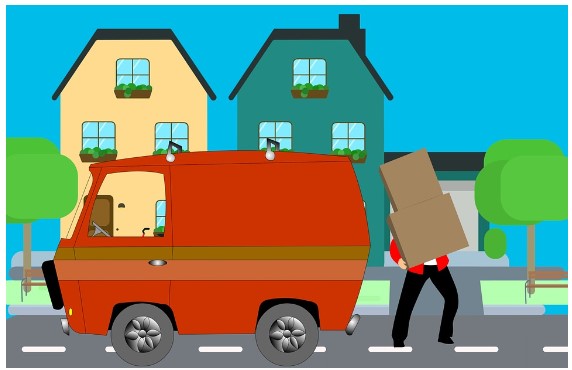
Image Source: Pixabay
When it comes to significant life events, one of the most daunting and expensive can be moving house. From finding a new home that checks all your boxes to relocating your belongings, there’s an ocean of costs involved – not just on a moving day but during the lead-up.
And if you don’t plan and factor in these necessary expenses when budgeting for moving house, things can quickly go from exciting to overwhelming (potentially very costly).
So today, we’re going to break down what factors play into the cost of relocating and provide you with some actionable tips for getting a handle on your budget when planning this big move.
Storage
If you’re moving out of a smaller property and into a bigger one, or even if you’re moving from one place to another, chances are you may need somewhere to store your belongings in between. This is especially important if there is any time lapse between when you move out of your old home and when your new one is ready to move.
The storage cost can vary depending on the size and type of space you require, so it pays to shop around. Often there are specials available or packages that include moving your items in and out of storage – make sure you understand exactly what’s included before you commit.
Utilities
When budgeting for a house move, one often overlooked cost is setting up utilities in your new home. Whether you’re connecting electricity and gas or signing up for a new internet plan, there will be associated costs with each provider.
It pays to shop around; compare prices from different providers and their packages and services. Setting up utilities usually requires some paperwork, so ensure you have all the necessary documents for each provider before you move in.
Moving Company
For some, the thought of moving their entire house by themselves can be overwhelming. If that’s the case for you, then hiring a professional moving company may be your best option. The cost of a professional mover will depend on the size and scope of your move, and the distance traveled.
Always get from at least three different moving companies, compare their services, and get a detailed quote in writing before you commit to one. If you need affordable moving services, check out local moving companies or get referrals from friends and family who have used them. The key is doing homework and shopping for the best deal.
Packing Supplies
While it’s possible to get away with reusing boxes from the supermarket, you’ll need some proper packing supplies to ensure everything arrives in one piece at the other end. This includes bubble wrap, tape, markers, packing paper, matt and box protectors, and even furniture covers if you take large items.
For delicate items such as glassware or plates, investing in specific packing boxes and materials is also a good idea.
Cleaning Services
Cleaning your old property is a crucial step when you move out of your house, so it pays to budget for this expense too. If you plan on cleaning yourself, you’ll need to factor in the cost of cleaning supplies.
However, if you want a professional job done, then it pays to research local cleaning companies and get some quotes. Many companies offer end-of-lease or vacate cleaning packages designed for this exact purpose, so check those out first.
Insurance
Once you’ve moved your belongings into the new house, you’ll want to ensure they are adequately insured in case of any damage or theft. Many home and contents insurance policies include coverage for items being moved. However, it pays to check with your insurer before you move to be sure.
Depending on the size and value of your belongings, it is also worth considering some additional-term insurance to protect them during the move. Speak to an insurance broker to find out more about this option.
Overall, budgeting for a house move doesn’t have to be complicated— but it does require some planning and forethought. By considering all the costs involved, you can ensure that your budget covers everything you need and avoid any nasty surprises along the way.
Comments